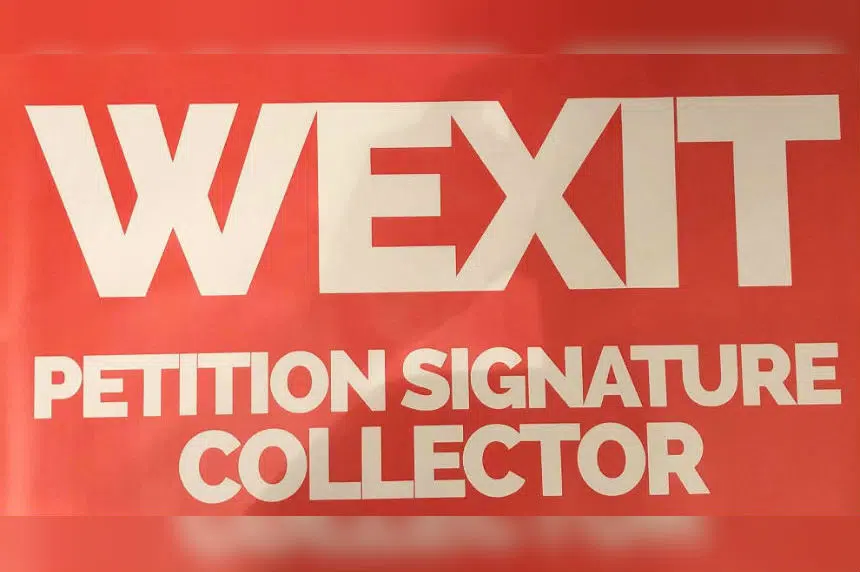Wexit Saskatchewan is up and running.
On Tuesday, Elections Saskatchewan announced the group that espouses Western Canadian separatism officially was being recognized as a political party in the province. Wexit Saskatchewan’s plan is to have candidates ready to run in the 2020 provincial election.
“We have a whole whack of emails already and we’re going through them one at a time, speaking to the people who want to run,” Jake Wall, the party’s interim leader, said as he drove to Swift Current. “They have to go through our vetting process, which isn’t going to take a long time.”
Wall said those who have indicated an interest in running under the party’s banner will have to go through a criminal record check and a social media check. The latter examination will be done, Wall said with a chuckle, “to make sure they’re not crazy.”
Wall admitted it might be a little crazy for a group to believe it can become a political party in March and win seats in an election in its maiden voyage mere months later. But he doesn’t have any doubt that Wexit Saskatchewan can make an immediate impression on the province’s political landscape.
“With people, when you back them in a corner, they finally start fighting back and that’s what we’re doing — we’re fighting back,” Wall said. “We’re not going to take it anymore from Ottawa and we’re not going to back down the way (Premier Scott) Moe does.”
Wall fired a broadside at Moe, saying the Saskatchewan Party leader hasn’t done enough for the province during his discussions with Prime Minister Justin Trudeau.
Wall believes Moe — and other premiers from Western Canada — should have threatened separation to get their message across to Trudeau.
“(Moe) has tools in his toolbox that he could use, but he chooses not to use them,” Wall said. “Instead, he just writes another letter.”
In fact, Wall said Moe is partly responsible for Wexit Saskatchewan’s existence.
In November, those favouring separatism suggested that Moe should hold a non-binding referendum to gauge the will of the people on the topic of separation. Moe didn’t do so, much to Wexit’s chagrin.
“He chose to ignore us,” Wall said. “We told him, ‘Plan A is you do it. Plan B is we do it.’ He ignored Plan A, so we go to Plan B. We did it.”
In January, Wexit Saskatchewan had just 800 signatures of people who wanted to see a pro-separatism party formed. Elections Saskatchewan’s regulations require at least “2,500 signatures, 1,000 of whom must reside in at least 10 different constituencies, with a minimum of 100 voters from each of those constituencies.”
As well, the signatures on the application for party status must be collected within six months of the date the group applied for official party status.
Over the past month, things took off for the party-to-be.
“Our volunteers started hitting the doors (and) started hitting the streets and within four weeks, we had 3,600 signatures — and they’re still coming in,” Wall said.
“(Getting official recognition) means we can move ahead now, vet candidates, start fundraising, get our platform out there and start getting ready for the election whenever it comes, whether it’s April or October.”
Premier not surprised about Wexit
Speaking to reporters at the legislature, Moe said he didn’t think anyone was surprised that Wexit Saskatchewan had been officially recognized as a party — and that included him.
He also noted he understood the views of those who formed the party and those who are considering supporting it.
“I have spoken very freely and candidly with respect to I understand why there are frustrations with Saskatchewan being part of this nation,” he said. “Those frustrations often and virtually always stem from the decisions that have come from the current government in Ottawa and I share in many cases some of those frustrations.
“What I fail to see is how becoming our own country would improve our opportunities for market access. What I fail to see is how becoming our own country and leaving Canada would improve our opportunities to actually transport those goods to market.”
Moe concluded by saying that the Sask. Party will “control the things that we can” and will examine ways to “exert our provincial autonomy” when possible.
— With files from 980 CJME’s Lisa Schick







